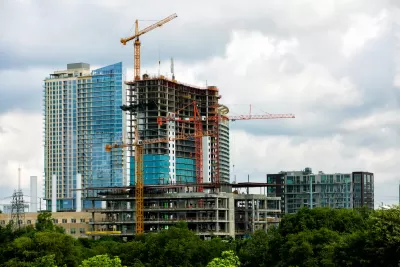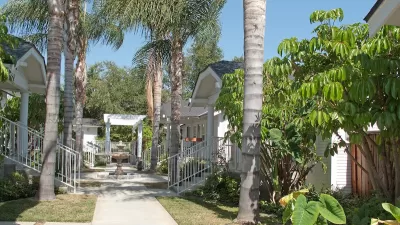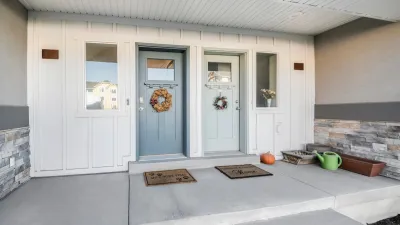A century-old law calls for a three-fourths vote to approve new projects when neighbors oppose the project, blocking affordable housing and multifamily developments.

A Texas state law requires a supermajority (three-fourths) vote in city councils to approve zoning amendments “when property owners of more than 20% of the adjacent property are opposed to the change in zoning” regardless of how many property owners are adjacent to the property in question, effectively killing many housing developments, according to reporting by Iris Dimmick in the San Antonio Report.
Under the current law, “The voices of current property owners have higher priority under the valid petition law than the potential tenants or beneficiaries of affordable housing.” San Antonio Mayor Ron Nirenberg supports eliminating the supermajority rule, noting that “Placing a supermajority threshold for the purposes of giving some members of the community an outsized voice to exclude people is, in my view, anti-democratic.”
Zoning amendments are the only type of change that requires a 75 percent supermajority, Dimmick adds. “Examples across the state show that the valid petition law has interfered with several affordable housing projects, from a single garage apartment, to multifamily projects like Vista Park and acres of single-family homes.”
The ‘valid petition’ law can be traced back to a 1920s New York City zoning ordinance that became part of the federal Standard State Zoning Enabling Act, which stemmed from the desire of Fifth Avenue merchants to exclude Jewish businesspeople from opening shop near them. Today, at least 20 states have a valid petition process on the books.
According to researcher Salim Furth, the law has a chilling effect on new multifamily development, even when it is not officially used to block a project. For housing activists, reforming the law would clear up a bottleneck for new housing development and prevent a small number of property owners from blocking new affordable housing.
FULL STORY: How a 100-year-old, ‘anti-democratic’ law is killing Texas housing projects

Alabama: Trump Terminates Settlements for Black Communities Harmed By Raw Sewage
Trump deemed the landmark civil rights agreement “illegal DEI and environmental justice policy.”

Study: Maui’s Plan to Convert Vacation Rentals to Long-Term Housing Could Cause Nearly $1 Billion Economic Loss
The plan would reduce visitor accommodation by 25% resulting in 1,900 jobs lost.

Planetizen Federal Action Tracker
A weekly monitor of how Trump’s orders and actions are impacting planners and planning in America.

Waymo Gets Permission to Map SF’s Market Street
If allowed to operate on the traffic-restricted street, Waymo’s autonomous taxis would have a leg up over ride-hailing competitors — and counter the city’s efforts to grow bike and pedestrian on the thoroughfare.

Parklet Symposium Highlights the Success of Shared Spaces
Parklets got a boost during the Covid-19 pandemic, when the concept was translated to outdoor dining programs that offered restaurants a lifeline during the shutdown.

Federal Homelessness Agency Places Entire Staff on Leave
The U.S. Interagency Council on Homelessness is the only federal agency dedicated to preventing and ending homelessness.
Urban Design for Planners 1: Software Tools
This six-course series explores essential urban design concepts using open source software and equips planners with the tools they need to participate fully in the urban design process.
Planning for Universal Design
Learn the tools for implementing Universal Design in planning regulations.
Caltrans
Smith Gee Studio
Institute for Housing and Urban Development Studies (IHS)
City of Grandview
Harvard GSD Executive Education
Toledo-Lucas County Plan Commissions
Salt Lake City
NYU Wagner Graduate School of Public Service





























